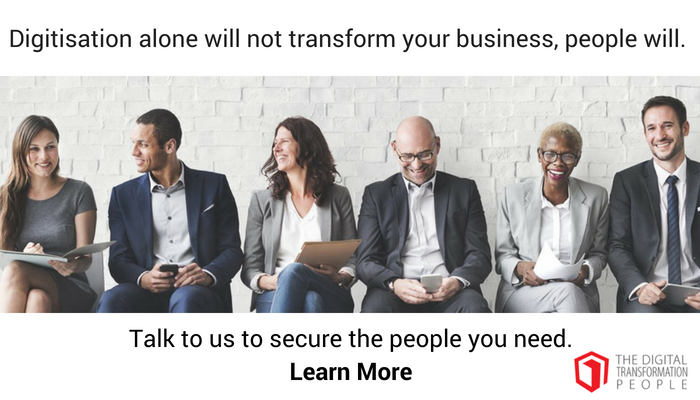With digital Gigs on the increase why are many business leaders reticent to actually engage contractors? As a contractor in the digital industry offering up my 20 years of experience to a broad range of sectors and industries, one of the more common challenges I face, along with other fellow Executive level consultants is finding the evidence, as a recent Mavenlink/ResearchNow survey states, that the gig economy is thriving!
This to you and me is the engagement of contractors implanted in and alongside their business teams!
Whilst I have worked on and managed or lead a number of large scale transformation programmes that have engaged a huge number of consultants and contract workforce, the conversations I have on a more day to day basis with a number of medium and large scale organisations is at odds with this.
According to an article I read only this week by Tom Keneshige, “Eight out of 10 executives say skilled contractors are a competitive advantage that, primarily, makes their companies more agile. Nearly half of executives want contractors to fill management and senior roles, including inside the c-suite. More than 90 percent of business leaders plan to continue or expand their use of skilled contractors next year.” *
I have certainly not consistently observed this myself.
For this to be true it a assumes a few key factors;
- Firstly that the businesses actually understand what it is that they need to do to transform, evolve and change their business models in order to move forward.
- Secondly that they have identified their core skills gaps, and thirdly that they can see real value in bringing in SME’s and other consulting specialists (that don’t offer the old school consulting methodologies that the big 4 are often cited for), and its understood that these GiG consultants can hit the ground running – they have experienced a wealth of similar issues and challenges before and know how to creatively work to find the right solutions to resolve and work together.
- Finally it also assumes that they understand the impact, outcomes and speed at which they will be able to start transforming their new or in-flight projects and how they are geared to achieve these – hiring consultants and contractors is a much faster process than looking for that perfect long term candidate.
It seems obvious to point this out but there are also the clear benefits of having ‘interim/ temporary staff ;- you can bring them in for tactical and short sharp insight pieces of work, you can get rid of them fast if they don’t quite fit the culture, or the project or programme changes shape or timeframes. You can perform health checks and pulse indicators of where your existing programmes are, share knowledge and inject new fresh working practises across your current workforce, and challenge the status quo of executive thinking in order to get different perspectives…….the list goes on and doesn’t even dig in to the financial benefits to the business of not having to provide NI, pensions etc. Yes, your business needs to be able to support your contract workforce, but there are contractors who can help you with that too!
Yet many C-suite executives sit on the fence with this decision. Why?
In my experience it comes down to a handful of different factors:
– They prefer to opt with the more expensive and (perceived) lower risk option of engaging a huge consulting firm that will likely take double the time, but provide piles of reassurance…. as a colleague of mine even suggested – no-one ever got fired for hiring Accenture! (Im not sure thats true but its certainly a longstanding expectation)
– They do nothing at all, assuming that it will all blow over and that their teams will somehow manage their own jobs as well as the new workload and have the diversity of skills to fulfil the requirements and accept that it will take a lot more time.
– Or they haven’t fully understood where the value is and how its going to impact them by not bringing in the skills – whats the cost of not doing it?
– They are afraid that once those skills walk out the door again that they will be left high and dry with processes, systems etc that without those individuals around, they are now helpless – surely the trick there is to ensure training, and facilitation of knowledge transfer as part of the contractual agreement?
Whether you engage the big consulting firms or not – the truth of the matter is that they are also recognising how important the GIG economy is and see true value in bringing in Gig skills to top up their own teams. With digital transformation programmes moving at such speed and with greater and greater diversity of topic and scale, there is a real need for not only businesses to review their structures but also the firms servicing them. The likes of Capgemini, Accenture, KPMG, PWC, Baringa are all sourcing Gig contractor pools, adapting and expanding their skills pools and delivery models and offering more tactical and shortened delivery options and work packages.
Furthermore in looking to the top 100 or so companies driving innovation programmes and really impacting on how the likes of AI, Robotics, blockchain are being utilised, where the likes of Unilever, are trailblazing how this should be done within their innovation capability; building and scaling their team and skills with creative delivery teams made up of a mix of both permanent and Gig staff.
This enables business flexibility and achieves new levels of creativity and innovation – if you don’t have the skills, find them and build on them. Its not about putting current staff and teams ‘at-risk’, but more a recognition that bringing in Gig staff who have the experience and different approaches, thinking and credentials – that these can be drawn upon to challenge status quo, slightly tired and sometimes institutionalised teams, shake things up and really advocate new ways of working and learning.
“Organizations will need to quickly adopt best practices – processes, frameworks, guidelines, analytics and insights – to help manage this growth before it gets unruly,” the Mavenlink study says. (Tom Kaneshige)
Those working in Gig roles have a responsibility too – we need to demystify our role and help clarify our value. We have a duty to deliver and to bring broader fresh insight and experience to the gig.
There is no doubt of the increasing number of freelance/ interim consultants at the seminars, conferences, networking events that I attend in order to keep abreast of the current topics, learnings, failures and successes of those around us being shared, cross industry and sector. There is definitely an acknowledgement amongst us too that we need to keep ourselves up to date, fresh and on the pulse. I for one am on a shared whats app group with other CIO and innovator specialists, many of whom are interim and contractors. We share ideas, we look at success and failure equally, we learn from each other. This enables us to keep up to date and gain insight and support from each other.
There is no question the Gig economy is happening as more and more ‘seasoned’ professionals look for more diversity and breadth of engagement. University leavers are starting their own businesses, out of both need (due to lack of placements as well as millennial age expectation,) and thus are challenging the established structures as well! Specialists are breaking away seeking lifestyle benefits beyond the 9-5 JOB; flexible working and provision of subject matter expertise to a broader group of clients – portfolio work and diversity of clients. This is what is driving the shift to the gig approach.
As always, businesses are trying to keep up. Its not just the transformation programmes that they need to keep up with, but the way in which their business cultures are changing and need to adapt in order to be able to keep pace in todays market place. Perhaps this is at the core of the conundrum, enabling businesses to bring in key staff skills seamlessly to compliment the teams and cultures they already have. The easier this is, ultimately the coming together of the two will be better resolved.
Article by channel:
Everything you need to know about Digital Transformation
The best articles, news and events direct to your inbox
Read more articles tagged: Business Model, Featured







